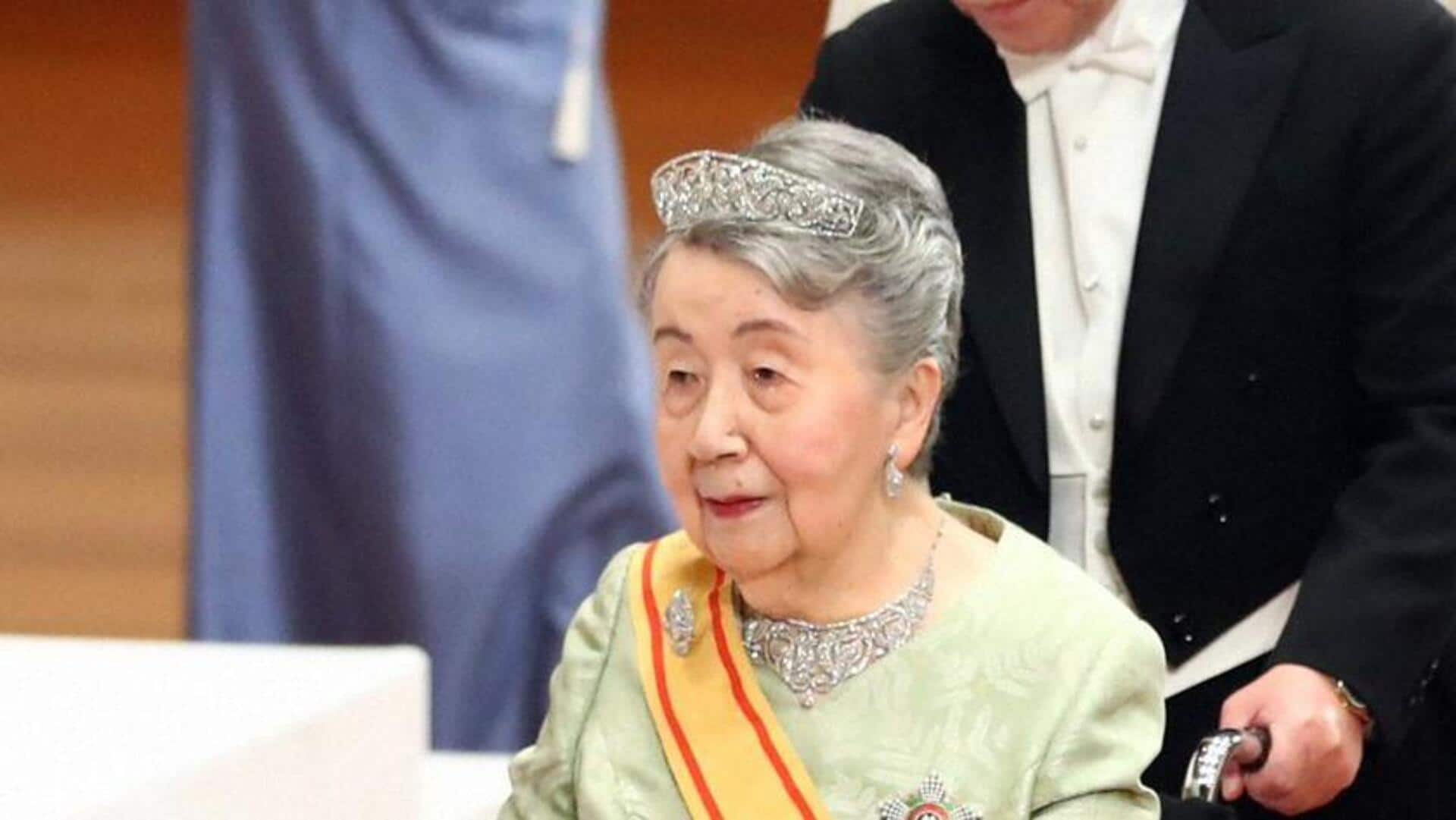
Princess Yuriko, Japan's oldest royal member, dies at 101
What's the story
Princess Yuriko, the oldest member of Japan's imperial family, has passed away at the age of 101. Her death was confirmed by palace officials on Friday at a Tokyo hospital. The Imperial Household Agency did not reveal the cause of her death, however, Japanese media attributed it to pneumonia. She was the wife of Prince Mikasa, the youngest brother of Emperor Hirohito, posthumously known as Emperor Showa. He is uncle of the current Emperor Naruhito.
Royal legacy
Princess Yuriko's life and royal duties
Born in 1923 into aristocracy, Yuriko married Prince Mikasa when she was just 18. They got married just months before World War II began. In the war's final months in 1945, Yuriko and her husband lived in a shelter with their baby daughter after their home was destroyed by US fire bombings of Tokyo.
Succession challenge
Yuriko's contributions and Japan's royal succession crisis
Yuriko raised five children and supported her husband's research into ancient Near Eastern history. She also fulfilled her official duties and engaged in philanthropic activities. Her death now leaves Japan's imperial family with just 16 members, including only four men. The 1947 Imperial House Law, which generally upholds strict prewar family norms, enables only males to ascend to the throne and requires female royal family members who marry commoners to lose their royal status.
Health deterioration
Yuriko's health decline and final days
Yuriko had led a healthy life as a centenarian until she suffered a stroke and contracted pneumonia in March. According to the Imperial Household Agency, she enjoyed morning exercises while watching a fitness program on TV, read newspapers and magazines regularly, and watched news and baseball on television. She was an honorary vice president of the Japanese Red Cross Society and, from 1948 to 2010, head of the Imperial Gift Foundation Boshi-Aiiku-Kai, which promotes maternal and child health.